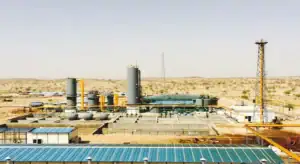Islamabad, April 03: IMF team will visit Pakistan from tomorrow, April 4, to prepare the budget for the next fiscal year.
An IMF delegation will visit Pakistan from tomorrow to prepare the budget for the fiscal year 2025-26.
According to sources, the delegation will hold talks with Pakistani officials regarding the budget for the next fiscal year, including tax revenue measures, expenditure control and other development expenditure budget.
Sources say that the federal budget for the next fiscal year will be presented in the first week of June and before that, the IMF team will prepare proposals in consultation with Pakistani officials to finalize the budget.
Pak IMF Talks Background
In July 2024, Pakistan and the International Monetary Fund (IMF) reached a staff-level agreement on a 37-month Extended Fund Facility (EFF) amounting to approximately $7 billion.
This agreement aimed to support Pakistan’s economic stability and promote sustainable growth.
In March 2025, discussions between Pakistan and the IMF focused on the first review of the EFF and a new arrangement under the Resilience and Sustainability Facility (RSF).
Also Read: Pakistan Poised to Receive $2.3bn under EFF & RSF: IMF
The RSF is designed to provide additional financial support for climate resilience and sustainability initiatives.
Upon approval by the IMF’s Executive Board, Pakistan is expected to access $1.3 billion from the RSF and an additional $1 billion from the EFF, totaling $2.3 billion in disbursements.
Key policy areas addressed during these discussions included:
Fiscal Consolidation: Implementing reforms to broaden the tax base and eliminate exemptions to ensure sustainable public finances.
Energy Sector Reforms: Addressing inefficiencies and reducing debt within the energy sector to enhance financial sustainability.
Monetary Policy: Managing interest rates to control inflation and support economic growth, with the central bank pausing rate cuts amid concerns over currency stability and trade deficits.
Structural Reforms: Implementing measures to improve the business environment, including privatization and regulatory reforms, to encourage private sector-led growth.
These efforts aim to build upon the macroeconomic stability achieved under the previous Stand-By Arrangement (SBA) and create conditions for stronger, more inclusive, and resilient growth in Pakistan.
Also Read: Pak-IMF Staff Level Agreement Announced, Approval Due
While progress has been noted, challenges remain, including the need for continued fiscal discipline and effective implementation of reforms to address structural issues within the economy.
The IMF has emphasized the importance of maintaining reform momentum to achieve the program’s objectives.









